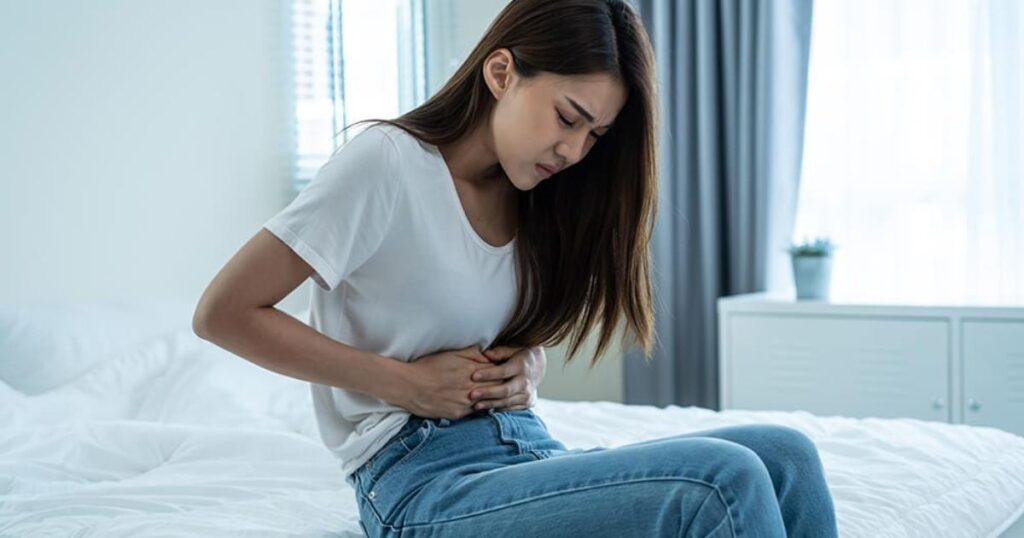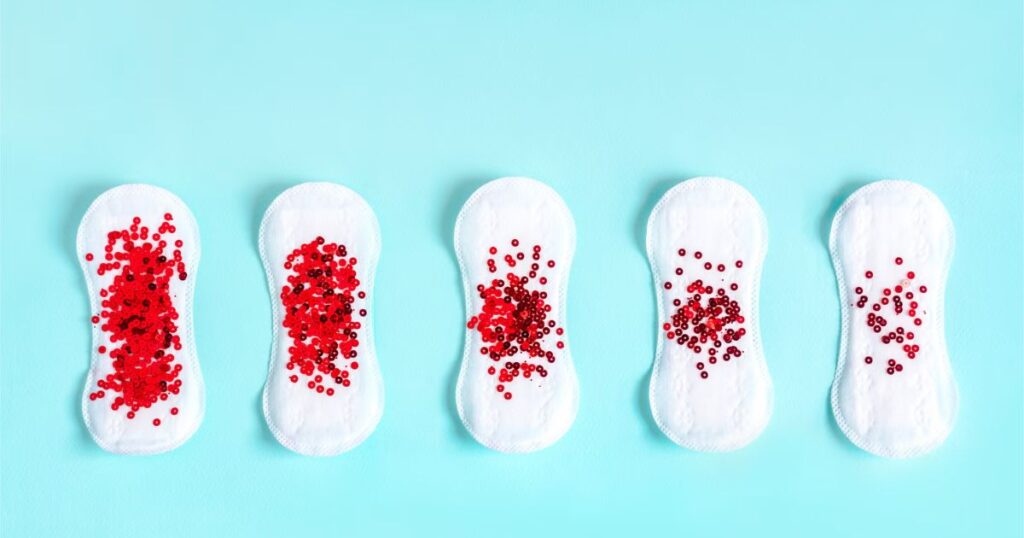Periods, also known as menstruation, are a natural part of the female reproductive cycle. They usually occur every month, signaling that the body is ready for a possible pregnancy. When periods are delayed, it can cause concern for many women.
If you want to get your periods immediately after a delay, there are a few things you can try. Simple lifestyle changes, natural remedies, and stress management can help. Understanding your body and its rhythms can also be beneficial.
How to Manage Your Menstrual Cycle?

The menstrual cycle refers to a monthly process under which a female body prepares itself for pregnancy. This lining is shed, and since there was no implantation of the embryo. The shedding is accompanied by blood, which is called menstruation. The vaginal discharge during menstruation entails the blood, mucus, and pieces of tissue from the uterine lining.
This discharge is usually regulated by hormonal changes and comprises the stage of menstruation, followed by the release of an egg from the ovary, also known as ovulation. In the event that no pregnancy occurs, this cycle is repeated. This cycle is an essential part of female reproductive health and fertility.
Read More: Breast Cancer – A Comprehensive Guide
Understanding Your Cycle and Its Delays
The menstrual cycle is a monthly process that is normal and prepares a woman’s body for pregnancy. It usually lasts about 28 days, but it can range from 21 to 35 days. The cycle has several phases:
Corpus luteum breaks down, hormone levels drop, and the cycle starts again with menstruation. Menstrual Phase (Days 1-5): This is when the uterus sheds its lining, leading to bleeding, which is known as a period.
Follicular Phase (Days 1-13): Overlaps with the menstrual phase initially. The pituitary gland releases a hormone called FSH, which stimulates the ovaries to produce follicles. One of these follicles will mature into an egg.
Ovulation (Day 14): Around the middle of the cycle, the mature egg is released from the ovary into the fallopian tube, ready for fertilization.
Luteal Phase (Days 15-28): After ovulation, the empty follicle forms the corpus luteum, which releases hormones to thicken the uterine lining for a possible pregnancy. If the egg isn’t fertilized, the corpus luteum breaks down, hormone levels drop, and the cycle starts again with menstruation.
Causes of Irregular Periods

The Main Causes of Irregular Periods includes:
- Stress: High-stress levels can affect hormone balance and delay your period.
- Weight Changes: Significant weight loss or gain can disrupt your monthly cycle.
- Exercise: Excessive physical activity can also lead to irregular periods.
- Hormonal Imbalances: An excess of the hormones progestin or estrogen, which control the uterine lining, can cause heavy bleeding. Hormone imbalances are most common in individuals who have recently begun menstruating or are nearing menopause.
- Illness: Acute or chronic illnesses such as pelvic inflammatory disease (PID), endometriosis, blood disorders, and benign tumors and cancers can possibly cause menstrual irregularity.
- Medications: Certain medicines, including birth control, can also alter your cycle.
- Pregnancy: A missed period can also be the first sign of pregnancy.
- Polycystic ovary syndrome: PCOS is a disorder that causes hormonal imbalances and upsets the regular period cycle, making it irregular.
- Thyroid conditions: Thyroid complications may also lead to an imbalance of reproductive hormones, which affects the menstrual cycle. The segments of the flow can be heavier or lighter than usual.
- Hyperprolactinemia: A high level of prolactin, a lactogenic hormone, can also inhibit the usual production of hormones necessary for regular menstrual cycles.
- Ovarian insufficiency: This disorder is characterized by the inability of the ovaries to work appropriately before the age of 40 years. Low levels of estrogen in the body cause irregular or absent periods.
How to Induce Your Period: Safe methods?
There are many approaches that can help regularize the menstrual cycle. Diet, exercise, and reducing stress, in combination with medicines, are the most effective ways to induce periods.
1) Exercise
Gentle exercise can relax the muscles and potentially help induce a period, though the evidence is mostly anecdotal. For those with irregular periods due to intense workout routines, moderating exercise can help restore hormonal balance and regular menstrual cycles.
2) Relaxation
High-stress levels are linked to menstrual irregularities. Reducing stress through relaxation techniques like gentle yoga, journaling, meditation, and spending time with loved ones may help induce a period if stress is causing delays or absences.
3) Orgasm
Sex and orgasms can help bring on a period. The hormonal changes and uterine contractions during orgasm can aid in dilating the cervix and initiating the shedding of the uterine lining.
4) Diet and Weight
Body weight significantly affects menstrual cycles. Low body fat can stop periods due to insufficient hormone production, while high body weight or sudden weight changes can cause irregular cycles. Maintaining a balanced diet and stable weight can help regulate periods.
5) Warm Compress or Bath
Applying a warm compress or taking a warm bath can relax the pelvic muscles and increase blood flow, which might help in inducing a period.
6) Certain Foods
Foods like pineapple, dates, ginger, papaya and vitamin C-rich items, as well as herbs like chamomile, parsley, cinnamon, rosemary, sage, and oregano, are believed to help induce periods naturally. These foods may stimulate blood flow or influence hormonal activity.
Also Read- Things to Keep in Mind while Pregnant
Medical Approaches for Inducing a Period

While natural ways to induce periods might work, medical ways are surefire ways to regulate your menstrual cycle. Here are 2 ways to prevent pregnancy and induce periods:
1. Hormonal birth control
Methods work by influencing the menstrual cycle and preventing pregnancy by changing the levels of reproductive hormones in the body. Hormonal contraception methods like patches, implants, injections, and hormonal intrauterine devices (IUDs) help prevent pregnancy.
They release synthetic hormones, like estrogen and progestin, that prevent the release of an egg from the ovaries. They also thicken cervical mucus to block sperm and thin the uterine lining to make it less receptive to a fertilised egg. All these hormonal methods of contraception will regularise periods, make them lighter, and reduce pain to a greater extent.
2. Oral Contraceptive pills
Oral Contraceptive pills are a reliable way to control the menstrual cycle. The combination pill, which has both estrogen and progestin, is the most effective method for managing periods. Typically, people take the hormonal pills for 21 days, followed by a 7-day break or dummy pill, during which they have their period.
You can also stop taking the hormonal pill early to make your period come sooner. However, not following the prescribed schedule for birth control pills can make them less effective at preventing pregnancy.
Potential Risks and Safety Precautions
Most methods discussed above to induce periods are safe. If you are using herbal supplements, use them with caution. Herbal supplements are not regulated by the FDA, so buy them from reputable sources to ensure quality and safety.
Avoid them if you have known allergies to herbs, foods, or supplements. Other precautions to follow while taking treatments to induce periods is as follows:
- Side Effects: Medications used to induce periods, such as hormonal pills, can cause side effects like nausea, vaginal bleeding, headaches, and mood swings.
- Hormonal Imbalance: Overuse or misuse of hormonal medications can disrupt your natural hormone balance.
- Serious Health Risks: In rare cases, hormonal medications can increase the risk of blood clots, strokes, or heart attacks, especially in smokers or those over 35.
- Underlying Conditions: If your periods are irregular, it’s important to consult a doctor to rule out any underlying conditions before trying to induce them naturally. The birth control pill may not be safe for patients with untreated high blood pressure who have a history of heart disease, migraines, history of breast or endometrial cancer.
- Discuss your medical conditions with a doctor to ensure the use of birth control pills. Always consult a doctor before taking any medication, especially if you are trying to conceive.
When to Consult with a Doctor or Other Healthcare Professional

Seek the help of a doctor if your period is consistently irregular, you miss three periods in a row without being pregnant, your periods stop before 45, or if you bleed between periods, after sex, or if you have any bleeding after menopause.
Takeaway
The menstrual cycle typically starts between ages 11 and 14 and continues until menopause around age 51. It usually lasts about 28 days but can range from 21 to 35 days. Periods typically last three to five days. Periods are considered irregular if they are shorter than 21 days or longer than 35 days.
Lifestyle changes, stress management, exercise, sexual arousal, and warm baths can help increase blood flow and potentially induce a period. Your doctor may suggest birth control pills with estrogen and progestin to regulate your cycle. Always discuss your medical history and any medications you are taking with your doctor.
Read More: Finding Balance: How Often Should You Eat Out?
Frequently Asked Questions
What to do if periods are not coming?
If your periods are not coming, try managing stress, maintaining a healthy lifestyle, and considering gentle exercise. If the issue persists, consult a healthcare professional.
How do periods come early by food?
Foods like papaya, pineapple, and spicy foods may help induce early periods by stimulating uterine contractions. Additionally, herbs like parsley and ginger are believed to influence menstrual timing.
How to get periods early?
You can speed up your period with gentle exercise, relaxation techniques, and certain foods like papaya, dates and pineapple. However, always consult with a doctor before trying any method.
How do I get my first period right now?
It’s not possible to force start your first period. It is a natural process and will happen between ages 11 and 14 once you attain puberty.
How to get periods fast?
You can potentially speed up your period with gentle exercise, warm baths, and relaxation techniques.
What age period starts in a girl?
Girls typically start their period between the ages of 11 and 14, but it can begin as early as 8 or as late as 16. The exact age varies for each individual.
How to get periods overnight?
It’s not possible to start your period overnight through natural or safe methods. If you’re concerned about irregular periods, consult a doctor for advice.
How do you know when your period is coming?
You may notice premenstrual symptoms such as bloating, breast tenderness, mood swings, or mild cramping. Tracking your menstrual cycle can also help predict when your period will start.
What is the discharge before a period?
Before a period, discharge is often thicker and white or creamy due to increased progesterone levels. This type of discharge is normal and helps to keep the vagina clean and healthy.
How can dietary changes affect my menstrual cycle?
Dietary changes can affect your menstrual cycle by influencing hormone levels; for example, a diet high in processed foods and low in nutrients can cause irregular periods.
Why is it not advisable to induce a period if pregnant?
Inducing a period while pregnant is not advisable because it can harm the developing foetus and potentially lead to miscarriage. Such actions can cause severe complications.
How to get your period faster for the first time?
It’s not recommended to try to induce your first period artificially, as it will come naturally when your body is ready. Maintaining a healthy lifestyle with balanced nutrition, regular exercise.
Can the period be delayed by 10 days?
A period can be delayed by 10 days due to factors like stress, hormonal imbalances, changes in routine, or underlying medical conditions.
Can periods occur during pregnancy?
It’s not possible to get your period while pregnant. If you do bleed during pregnancy, it’s related to something else other than regular menstruation.
Conclusion
In conclusion, dealing with a delayed period can be frustrating, but there are ways to encourage its arrival. Simple changes to your diet, exercise routine, and stress levels can make a difference. Additionally, natural remedies like herbal teas may help stimulate your menstrual cycle.
Remember, it’s essential to listen to your body and consult a healthcare professional if you have ongoing concerns. Understanding your menstrual cycle is key to managing delays. By taking these steps, you can feel more in control and at ease when facing a delayed period.

